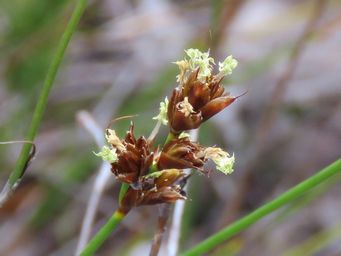Australia So Much to See
Copyright (C) 2013 AustraliaSoMuchtoSee.com. All reights reserved
Sources used for identification of wildflowers shown on these pages and regions where they occur see Credits
These pages will
feature some of the wildflowers we have photographed in Western Australia, and where possible, identified. If you
are able to help identify further flowers, or correct any I may have wrong, please contact us.
Information given for each species
will give botanical name, known common names, describe the flower, give time of year it was seen, and where it was photographed, and
the areas it occurs in. Names have been matched to Florabase which has also been used to show distribution.
See some
of these wildflower in larger sized photos on our Flickr pages.
Lyperanthus serratus Rattle Beak Orchid, Rattle Beaks, Car
Red stripe down yellow petals, with green hoods on each flower, orchid, several flowers along upright stem from a single long leaf. Fluffy white labellum with reddish calli along the top. Flower above right showing more red as it fades
Spring
Bridgetown, South West Region, Western Australia occurs throughout the South West, into the Wheatbelt and Great Southern and along the coast from north of Perth to the Esperance area
Red stripe down yellow petals, with green hoods on each flower, orchid, several flowers along upright stem from a single long leaf. Fluffy white labellum with reddish calli along the top. Flower above right showing more red as it fades
Spring
Bridgetown, South West Region, Western Australia occurs throughout the South West, into the Wheatbelt and Great Southern and along the coast from north of Perth to the Esperance area
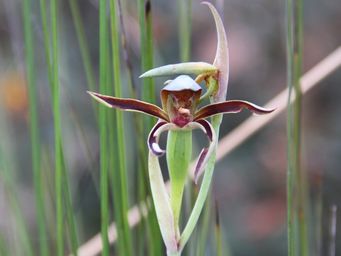
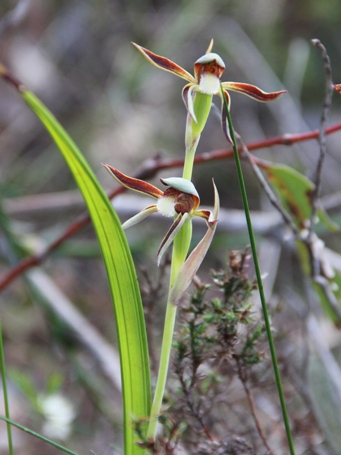
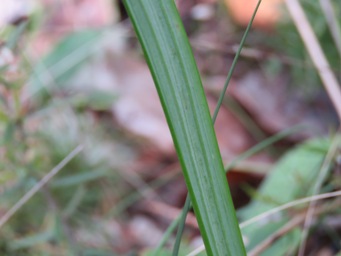
Below shows leaf with developing bud, which comes from the concave matt surfaced side of the long ribbed leaf. The other
side is shiny and curved outwards.
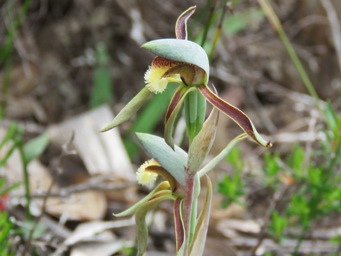
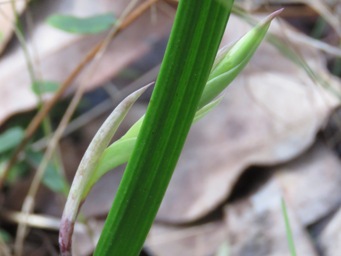
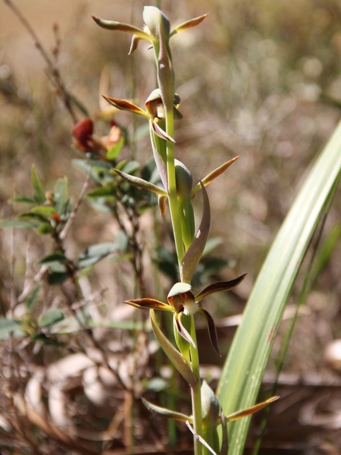
F
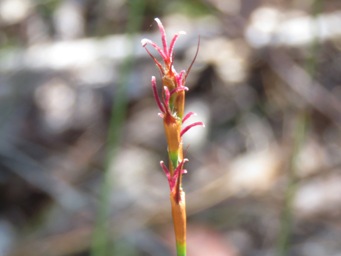
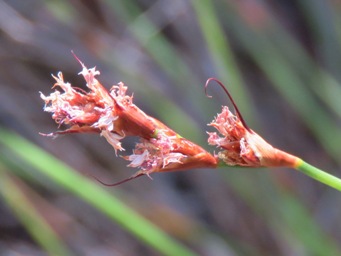
Lyginia imberbis
A sedge with male and female plants, each with flowers at the top of round reed like stems. Pink anthers on the female flowers, with the male flowers being the more complex. The name imberbis (meaning beardless) refers to the sparser cilia on the sheaths and spathes, compared with the similar Lyginia barbata.
December
Bridgetown, South West region, Western Australia and can be found through the Mid West, Wheatbelt, Perth, South West, and Great Southern regions, and along the south coast to the east of Esperance, preferring sandy winter wet areas.
Lyginia barbata (not photographed) is similar, with differences being
cilia on the sheaths and spathes, (with the name barbata meaning bearded).
